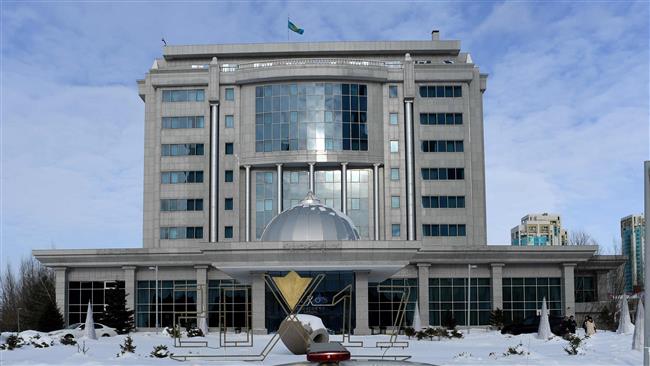Consensus on participants in Syria talks promising: Analyst
The representatives of the Syrian government and armed opposition have started indirect talks in Kazakhstan to review avenues for peace in Syria. The two-day talks started in Kazakhstan’s capital, Astana, on Monday.
Speaking to Press TV, Muhammad Ali Carter, a journalist and political commentator, welcomed the consensus reached between the Damascus government and the armed opposition to exclude extremists and their supporters from the peace talks, which are dubbed the International Meeting on Syrian Settlement.
“It’s good to see that groups are beginning to come to the idea that not every opposition group can be included... because of the fact that they are radical terrorists,” Carter told Press TV’s “Top 5” program on Sunday night.
He also said that a major advantage of the Astana talks was that organizers had reduced the number of participating countries hostile to Syria.
Saudi Arabia, the United States, and European powers were not going to be directly involved in the talks and that was “a good sign” because the talks had to remain Syrian-Syrian, he said. He hoped the talks would bear fruit because they were intra-Syrian.
Hopefully, he said, the Astana talks “could be an opportunity maybe for all sides to try and put aside their disagreements” and find common cause.
Carter referred to remarks by US President Donald Trump that he would be ready to cooperate with Russia in the fight against the Daesh terrorist group in Syria and said such potential common work could be positive not only for Syria but also for the entire region.
The militancy in Syria began in March 2011. Several rounds of United Nations (UN)-brokered talks have failed to end the crisis. The Astana talks have now been organized by Iran, Russia, and Turkey. UN representatives are in attendance, nonetheless.
American warplane downed after Yemeni attacks 'baffled' US air defense: Ansarullah
VIDEO | Yemenis praise the military for its successful operations against Israel
VIDEO | Israel continues to bomb Gaza homes
VIDEO | An insider's view of the country: Meybod City in Yazd
‘All wars have rules. All of those rules have been broken’ by Israel
VIDEO | Report flags India’s violation of rights of Rohingya detainees
Turkey's foreign minister meets Syria's de facto leader in Damascus
VIDEO | US Syria plots













 This makes it easy to access the Press TV website
This makes it easy to access the Press TV website